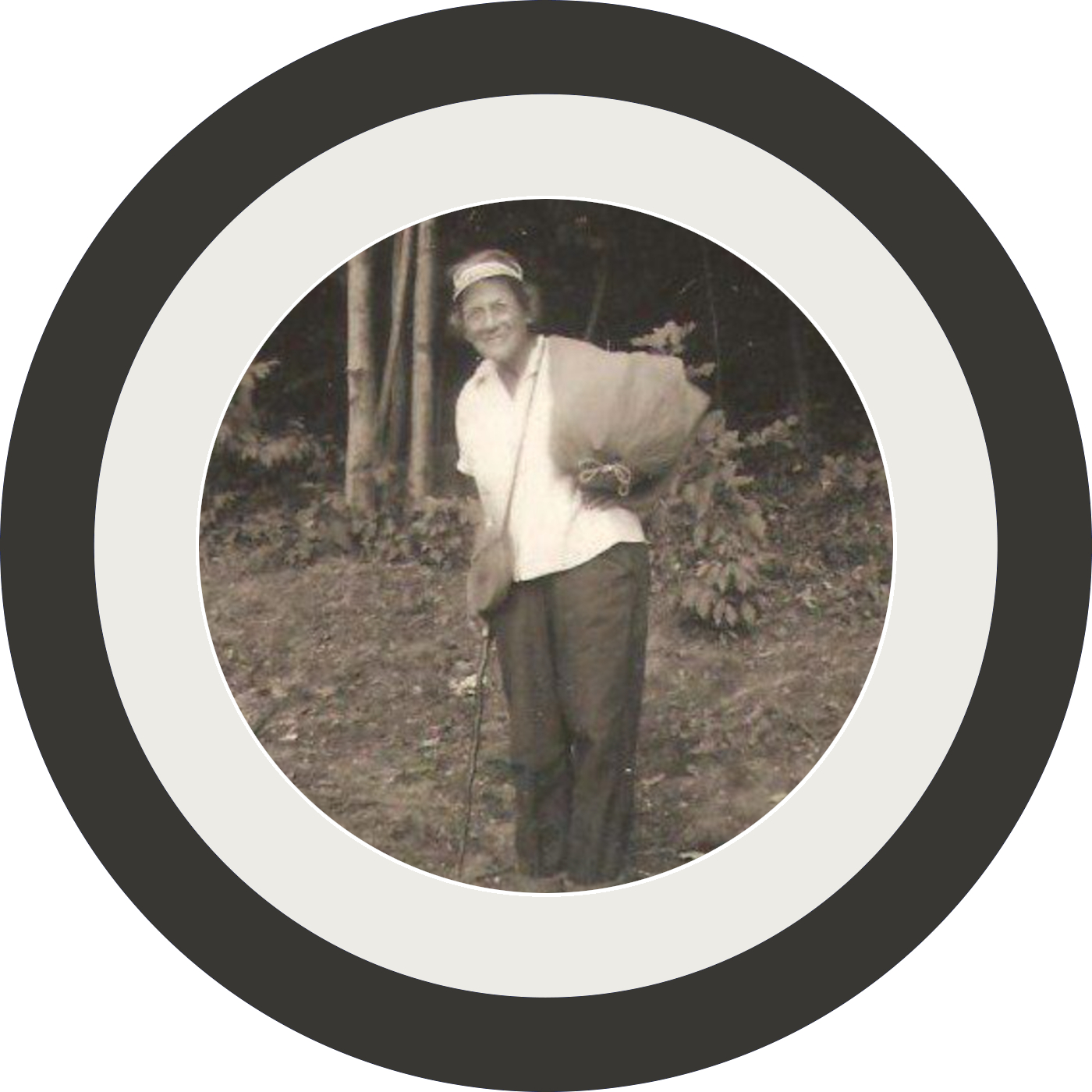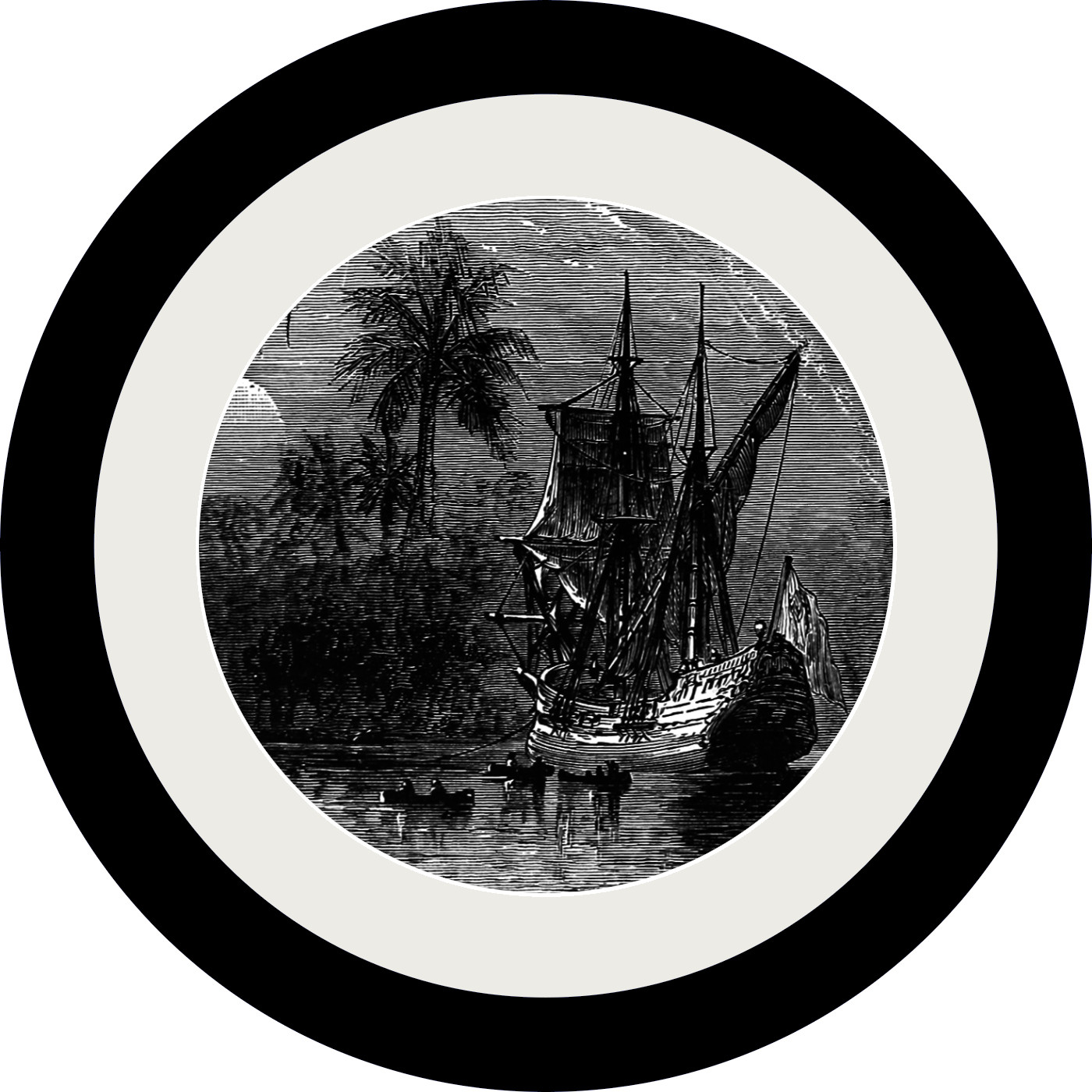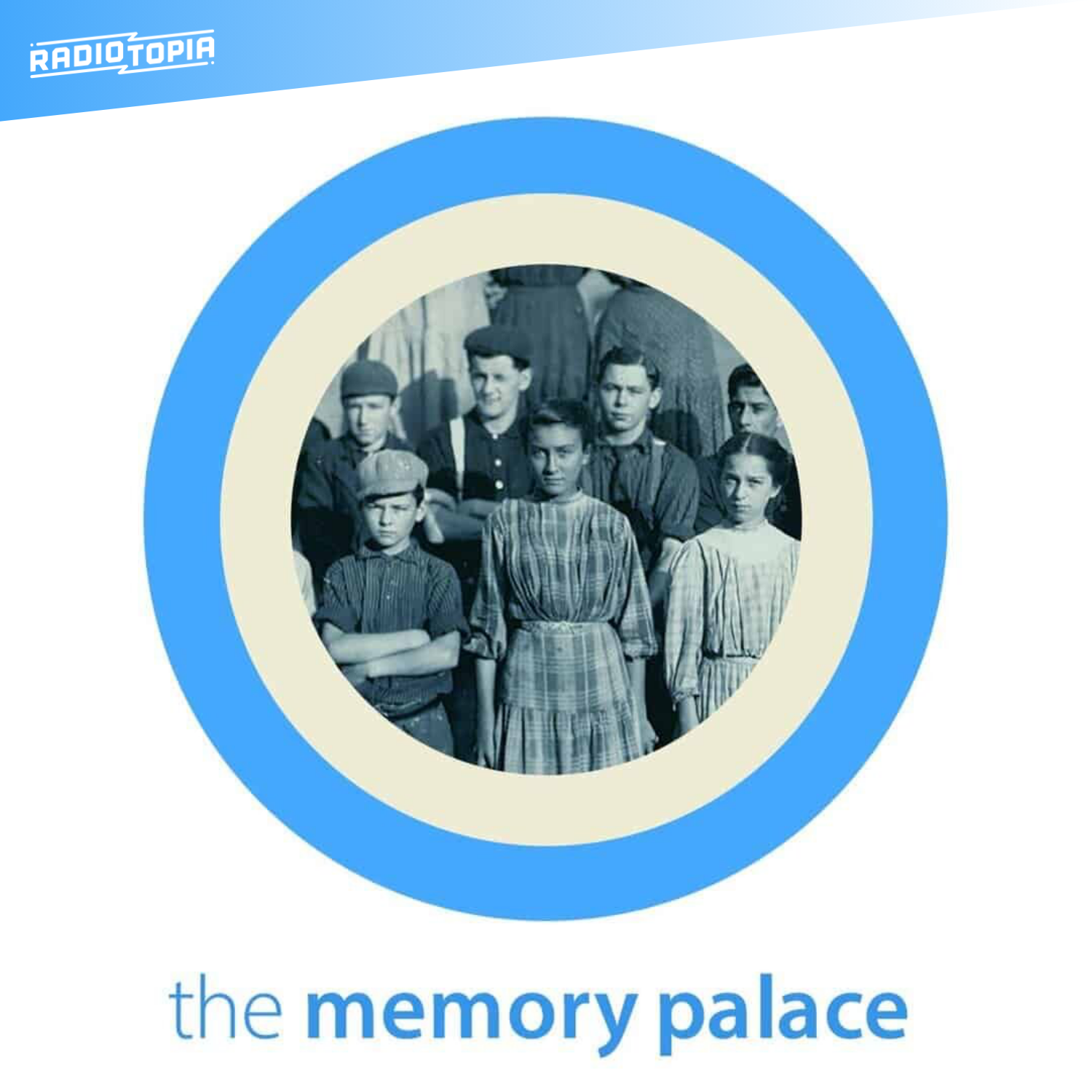Summer Reading: Two Transcendent Poems About Public Transportation
Order The Memory Palace book now, dear listener. On Bookshop.org, on Amazon.com, on Barnes & Noble, or directly from Random House. Or order the audiobook at places like Libro.fm.
The Memory Palace is a proud member of Radiotopia from PRX. Radiotopia is a collective of independently owned and operated podcasts that’s a part of PRX, a not-for-profit public media company. If you’d like to directly support this show, you can make a donation at Radiotopia.fm/donate.
While Nate takes a little summer break, he reads you two poems.
Learn about your ad choices: dovetail.prx.org/ad-choices
Press play and read along
Transcript
Speaker 1 Support for this podcast and the following message comes from Sutter Health.
Speaker 1 From life-changing transplants to high-blood pressure care, Sutter's team of doctors, surgeons, and nurses never miss a beat.
Speaker 1 And with cardiac specialty centers located in the community, patients can find personalized heart care that's close to home. Learn more at Sutterhealth.org.
Speaker 2
This episode of Memory Palace is brought to you by Progressive Insurance. You chose to hit play on this podcast today.
Smart Choice.
Speaker 2 Make another Smart Choice with AutoQuote Explorer to compare rates from multiple car insurance companies all at once. Try it at Progressive.com.
Speaker 2 Progressive Casualty Insurance Company and affiliates, not available in all states or situations. Prices vary based on how you buy.
Speaker 2
This is the Memory Palace. I'm Nate DeMayo, and it's the end of the summer.
And sometimes at the end of the summer, when I take a little time off, I like to leave you with something to listen to.
Speaker 2 And I read something from American literature. Uh and today I have uh two poems, each
Speaker 2 transcendent stories of a particular kind of American transcendence that both take place on public transportation. This is Crossing Brooklyn Ferry by Walt Whitman.
Speaker 2
Flood tide below me, I see you face to face. Clouds of the west, sun there a half an hour high.
I see you also face to face.
Speaker 2 Crowds of men and women attired in the usual costumes, how curious you are to me. On the ferry boats the hundreds and hundreds that cross, returning home, are more curious to me than you suppose.
Speaker 2 And you that shall cross from shore to shore, years hence, are more to me and more in my meditations than you might suppose.
Speaker 2 The impalpable sustenance of me from all things at all hours of the day the simple, compact, well jointed scheme, myself disintegrated, every one disintegrated yet part of the scheme the simultudes of the past and those of the future, the glory strung like beads on my smallest sides and hearings, on the walk in the street and the passage over the river, the current rushing so swiftly and swimming with me far away, the others that are to follow me, the ties between me and them, the certainty of others, the life, love, sight, hearing of others.
Speaker 2 Others will enter the gates of the ferry and cross from shore to shore. Others will watch the run of the flood tide.
Speaker 2 Others will see the shipping of Manhattan north and west, the heights of Brooklyn to the south and east, others will see the islands large and small.
Speaker 2 Fifty years hence others will see them as they cross, the sun half an hour high.
Speaker 2 A hundred years hence, or ever so many hundred years hence, others will see them, will enjoy the sunset, the pouring in of the flood tide, the falling back to the sea of the ebb tide.
Speaker 2
It avails not, time nor place, distance avails not. I am with you, you men and women of a generation, or ever so many generations hence.
Just as you feel when you look on the river and sky, so I felt.
Speaker 2 Just as any of you is one of a living crowd, I was one of a crowd. Just as you are refreshed by the gladness of the river and the bright flow, I was refreshed.
Speaker 2 Just as you stand and lean on the rail, yet hurry with the swift current. I stood yet was hurried.
Speaker 2 Just as you look on the numberless masts of ships and the thick stemmed pipes of steamboats, I looked.
Speaker 2 I too many and many a time crossed the river of old, watched the twelfth-month seagulls, saw them high in the air floating with motionless wings, oscillating their bodies, saw how the glistening yellow lit up parts of their bodies and left the rest in strong shadow, saw the slow wheeling circles and the gradual edging toward the south, saw the reflection of the summer sky in the water, had my eyes dazzled by the shimmering track of beams, looked at the fine centrifugal spokes of light round the shape of my head in the sunlit water.
Speaker 2
Look at on the haze and the hills southward and westward. Look at on the vapor as it flew in fleeces tinged with violet.
Looked toward the lower bay to notice the vessels arriving.
Speaker 2 Saw their approach, saw aboard those that were near me, saw the white sails of schooners and sloops, saw the ships at anchor, the sailors at work, and the rigging or astride the spars.
Speaker 2 The round masts, the swinging motion of the hulls, the slender serpentine pennants, the large and small streamers in motion, the pilots and their pilot houses, the white wake left by the passage, the quick tremulous whirl of the wheels, the flags of all nations, the falling of them at sunset, the scalloped-edged waves in the twilight, the ladled cups, the frolicsome crests and glistening, the stretch afar growing dimmer and dimmer, the grey walls of the granite storehouses by the docks.
Speaker 2 On the river, the shadowy group, the big steam tug closely flanked on each side by the barges, the hayboat, the belated lighter, on the neighboring shores, the fires from the foundry chimneys burning high and glaringly into the night, casting their flicker of black contrasted with wild red and yellow light over the tops of houses and down into the clefts of streets.
Speaker 2 These and all else were to me the same as they are to you. I love well those cities, love well the stately and rapid river.
Speaker 2 The men and women I saw were all near to me, others the same, others who look back on me because I looked forward to them. The time will come, though I stop here to-day and to-night.
Speaker 2 What is it, then, between us? What is the count of the scores or hundreds of years between us?
Speaker 2
Whatever it is, it avails not. Distance avails not, and place avails not.
I too lived. Brooklyn of ample hills was mine.
Speaker 2 I too walked the streets of Manhattan Island, and bathed in the waters around it. I too felt the curious, abrupt questioning stir within me.
Speaker 2 In the day among crowds of people, sometimes they came upon me. In my walks home late at night, or as I lay in my bed, they came upon me.
Speaker 2
I too have been struck from the float forever held in solution. I too have received identity by my body.
That I was, I knew, was of my body. And what I should be, I knew I should be of my body.
Speaker 2 It is not upon you alone the dark patches fall. The dark threw its patches down upon me also.
Speaker 2 The best I had done seemed to me blank and suspicious. My great thoughts, as I suppose them, were they not in reality meager?
Speaker 2 Nor is it you alone who knows what it is to be evil. I am he who knew what it was to be evil.
Speaker 2 I too knitted the old knot of contrariety, blabbed, blushed, resented, lied, stole, grudged, had guile, anger, lust, hot wishes I dared not speak, was wayward, vain, greedy, shallow, sly, cowardly, malignant, the wolf, the snake, the hog, not wanting in me.
Speaker 2
The cheating look, the frivolous word, the adulterous wish not wanting. Refusals, hates, postponements, meanness, laziness, none of these wanting.
Was one with the rest, the days and haps of the rest.
Speaker 2 Was called by my nightest name by clear loud voices of young men as they saw me approaching or passing.
Speaker 2 Felt their arms on my neck as I stood, or the negligent leaning of their flesh against me as I sat. Some many I loved in the street or ferry boat or public assembly, yet never told them a word.
Speaker 2 Lived the same life with the rest, the same old laughing, gnawing, sleeping, played the part that still looks back on the actor or actress, the same old role, the role that is what we make it, as great as we like, or as small as we like, or both great and small.
Speaker 2 Closer yet I approach you.
Speaker 2 What thought you have of me now, as I had as much of you? I laid in my stores in advance, I considered long and seriously of you before you were born. Who was to know what should come home to me?
Speaker 2 Who knows, but I am enjoying this?
Speaker 2 Who knows for all the distance, but I am as good as looking at you now, for all you cannot see me? Ah,
Speaker 2 what can ever be more stately and admirable to me than mass-temid Manhattan, river and sunset and scallop-edged waves of flood tide, the seagulls oscillating their bodies, the hay-boat in the twilight, and the bladed lighter.
Speaker 2 What gods can exceed these that clasp me by the hand and, with voices I love, call me promptly and loudly by my nightest name as I approach?
Speaker 2 What is more subtle than this which ties me to the woman or man that looks in my face, which fuses into you now as I pours my meaning into you? We understand then, do we not?
Speaker 2 What I promised it without mentioning it? Have you not accepted? What the study could not teach, what the preaching could not accomplish, it accomplished.
Speaker 2
Is it not? Flow on, river. Flow with the flood tide and ebb with the ebb tide.
Frolic on, crested in scallop-edged waves.
Speaker 2 Gorgeous clouds of the sunset, drench with your splendor me, or the men and women generations after me. Cross from shore to shore, countless crowds of passengers.
Speaker 2
Stand up, tall masts of Manhattan, stand up, beautiful hills of Brooklyn. Throb, baffled and curious brain, throw out questions and answers.
Suspend here and everywhere eternal float of solution.
Speaker 2
Gaze, loving and thirsting eyes in the house or street or public assembly. Sound out voices of young men.
Loudly and musically call me by my nightest name.
Speaker 2 Live, old life, play the part that looks back on the actor or actress. Play the old role, the role that is great or small, according as one makes it.
Speaker 2 Consider, you who peruse me, whether I may not in unknown ways be looking upon you. Be firm, rail over the river, to support those who lean idly, yet haste with the hasting current.
Speaker 2 Fly on, seabirds, fly sideways, or wheel in large circles high in the air. Receive the summer sky, you water, and faithfully hold it till all downcast eyes have time to take it from you.
Speaker 2 Diverge, fine spokes of light, from the shape of my head or or anyone's head in the sunlit water. Come on, ships from the lower bay.
Speaker 2
Pass up or down, white-sailed schooners, sloops, lighters, flaunt away, flags of all nations. Be duly lowered at sunset.
Burn high your fires, foundry chimneys. Cast black shadows at nightfall.
Speaker 2 Cast red and yellow light over the tops of the houses. Appearances, now or henceforth, indicate what you are.
Speaker 2
Your necessary film, continue to envelop the soul, about my body for me, and your body for you. Be hung out, divinest aromas.
Thrive, cities.
Speaker 2
Bring your freight, bring your shows, ample and sufficient rivers. Expand, being then, which none else is perhaps more spiritual.
Keep your places, objects then, which none else is more lasting.
Speaker 2 You have waited, you always wait, you dumb, beautiful ministers. We receive you with free sense at last, and are insatiate henceforward.
Speaker 2
Not you anymore shall be able to foil us, or withhold yourselves from us. We use you and do not cast you aside.
We plant you permanently within us. We fathom you not.
We love you.
Speaker 2
There is perfection in you also. You furnish your parts toward eternity.
Great or small, you furnish your parts toward the soul.
Speaker 2 And here is another of my favorite poems, The Moose by Elizabeth Bishop.
Speaker 2 From now our provinces of fish and bread and tea, home of the long tides where the bay leaves the sea twice a day and takes the herrings long rides.
Speaker 2 Where if the river enters or retreats in a wall of brown foam, depends on if it meets the bay coming in.
Speaker 2 The bay not at home, where, stilted red, sometimes the sun sets, facing a red sea, and others veins the flats lavender, rich mud and burning rivulets on red, gravelly roads, past sugar maples, past clapboard farmhouses, and neat clapboard churches, bleached, ridged as clamshells, past twin silver birches.
Speaker 2 Through late afternoon a bus journeys west, the windshield flashing pink, pink glancing off metal, brushing the dented flank of blue beat up enamel.
Speaker 2
Down hollows up rises and waits, patient, while a lone traveler gives kisses and embraces to seven relatives and a collie supervises. Goodbye to the elms, to the farm, to the dog.
The bus starts.
Speaker 2 The light grows richer. The fog shifting, salty, thin, comes closing in.
Speaker 2 Its cold round crystals form and slide and settle in the white hens' feathers and gray-glazed cabbages and the cabbage roses and lupins like apostles.
Speaker 2
The sweet peas cling to their wet white string and the whitewashed fences. Bumblebees creep inside the foxgloves and evening commences.
One stop at Bass River.
Speaker 2
Then the economies, lower, middle, upper. Five islands, five houses, where a woman shakes a tablecloth out after supper.
A pale flickering, gone, the tantrumar marshes and the smell of salt hay.
Speaker 2
An iron bridge trembles and a loose plank rattles but doesn't give way. On the left, a red light swims through the dark.
A ship's port lantern. Two rubber boots show illuminated, solemn.
Speaker 2
A dog gives one bark. A woman climbs in with two market bags.
Brisk, freckled, elderly. A grand night, yes, sir, all the way to Boston.
She regards us amicably.
Speaker 2 Moonlight as we enter the New Brunswick woods, hairy, scratchy, splintery. Moonlight and mist caught in them like lamb's wool and bushes in a pasture.
Speaker 2 The passengers lie back, snores, some long sighs. A dreamy divigation begins in the night.
Speaker 2 A gentle auditory, slow hallucination, and the creakings and noises and old conversation, not concerning us but recognizable somewhere, back in the bus, grandparents' voices, uninterruptedly talking in eternity, names being mentioned, things cleared up finally, what he said, what she said, who got pensioned, deaths, deaths, and sicknesses, the year he remarried, the year something happened.
Speaker 2
She died in childbirth. That was the son lost when the schooner foundered.
He took to drink, yes.
Speaker 2
She went to the bed. When Amos began to pray, even in the store, and finally the family had to put him away.
Yes.
Speaker 2
That peculiar affirmative, yes. A sharp, indrawn breath, half groan, half acceptance, that means life's like that.
We know it, also death.
Speaker 2 Talking the way they talked in the old feather bed, peacefully, on and on, dim lamplight in the hall, down in the kitchen, the dog tucked in her shawl.
Speaker 2 Now it's all right now, even to fall asleep, just as on all those nights. Suddenly, the bus driver stops with a jolt, turns off his lights.
Speaker 2 A moose has come out of the impenetrable wood and stands there, looms rather, in the middle of the road. It approaches, it sniffs at the bus's hot hood.
Speaker 2 Towering, anterless, high as a church, homely as a house, or safe as houses, a man's voice assures us, perfectly harmless.
Speaker 2
Some of the passengers exclaim in whispers, childishly, softly, sure are big creatures. It's awful plain.
Look, it's a she.
Speaker 2
Taking her time, she looks the bus over. Grand, otherworldly.
Why do we feel we all feel this sweet sensation of joy? Curious creatures, says our quiet driver, rolling his R's.
Speaker 2
Look at that, would you? Then he shifts gears. For a moment longer, by craning backward, the moose can be seen on the moonlit macadam.
Then there's a dim smell of moose, an acrid smell of gasoline
Speaker 2 from PRX.





